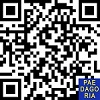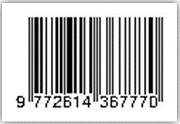SYSTEMATIC LITERATURE REVIEW: A PROBLEM-BASED LEARNING APPROACH IN THE APPLICATION OF MATHEMATICS LEARNING AT PRIMARY SCHOOL AGE
Abstract
Abstrak: Penelitian ini dilatarbelakangi beragamnya hasil temuan pada penerapan pembelajaran berbasis masalah, beberapa studi menunjukkan hasil yang positif sedangkan studi lainnya kurang konklusif dan sebagian besar penelitian berfokus pada berbagai jentang pendidikan, sehingga diperlukan penelitian untuk memahami secara mendalam tentang model PBL pada siswa sekolah dasar. Penelitian ini bertujuan untuk mengidentifikasi tren model PBL berdasarkan jenis metode penelitian, tahun penelitian, domain materi, klasifikasi kelas, dan hasil penelitian mengenai penerapan PBL yang dilakukan pada mata Pelajaran matematika di sekolah dasar dari tahun 2020-2024. Metodologi penelitian ini yaitu Systematic literatur review (SLR). Hasil penelitian menunjukan bahwa penerapan PBL pada pembelajaran matematika di sekolah dasar selama periode 2020-2024 menunjukkan adanya tren dengan jenis metode penelitian menggunakan pendekatan kuantitatif sebanyak 7 artikel, tahun 2020 dengan persentase 33% terjadi penelitian tertinggi, domain materi menunjukkan lima artikel fokus pada kemampuan pemecahan masalah, klasifikasi kelas penelitian PBL terbanyak dilakukan pada kelas 4 dan 5, dan terakhir terdapat 14 penelitian menujukkan hasil penelitian yang berhasil, dan satu penelitian tidak menemukan perbedaan signifikan antara PBL dan model pembelajaran lain(belum berhasil). Secara keseluruhan, tren penelitian menunjukkan adanya konsensus bahwa PBL memiliki potensi besar untuk meningkatkan kualitas pembelajaran matematika di sekolah dasar.
Abstract: This research is motivated by the diverse findings on the application of problem-based learning; some studies show positive results while other studies are less conclusive, and most of the research focuses on various ranges of education, so research is needed to understand in-depth the PBL model in elementary school students. This study aims to identify trends in PBL models based on the type of research method, year of research, material domain, class classification, and research results regarding the application of PBL conducted in mathematics subjects in elementary schools from 2020-2024. This research methodology is a Systematic literature review (SLR). The results showed that the application of PBL in mathematics learning in elementary schools during the period 2020-2024 showed a trend with the type of research method using a quantitative approach in as many as seven articles, the year 2020 with a percentage of 33% occurred the highest research, the material domain showed five articles focused on problem-solving skills, the classification of PBL research classes was primarily conducted in grades 4 and 5, and finally, 14 studies were showing successful research results. One study did not find significant differences between PBL and other learning models (unsuccessful). Overall, the research trends show a consensus that PBL has excellent potential to improve the quality of mathematics learning in elementary schools.Keywords
Full Text:
PDFReferences
Andani, M., Haki Pranata, O., & Hamdu, G. (2021). Systematic Literature Review: Problem-based Learning Model in Elementary School Mathematics Learning. PEDADIDAKTIKA: JURNAL ILMIAH PENDIDIKAN GURU SEKOLAH DASAR, 8(2), 404–417. http://ejournal.upi.edu/index.php/pedadidaktika/index
Ardianti, R., Sujarwanto, E., & Surahman, E. (2021). Problem-based Learning: What and How. DIFFRACTION: Journal for Physics Education and Applied Physics, 3(1), 27–35. http://jurnal.unsil.ac.id/index.php/Diffraction
Arfianto, A., Sutama, S., & Fathoni, A. (2022). Feasibility of Problem-based Learning (PBL)-based Learner Worksheet Book for Limited Face-to-Face Learning in Elementary School. Jurnal Basicedu, 6(1), 656–663. https://doi.org/10.31004/basicedu.v6i1.1985
Chalis, G. A., & Ariani, Y. (2020). Pengaruh The Effect of Problem-Based Learning (PBL) Model on Fraction Learning Outcomes at School. Jurnal Pendidikan Tambusai, 4(3), 2936–2944.
Dewantari, O., & Djami, C. B. N. (2022). The Effectiveness of Using Problem-Based Learning Model Assisted by Grocery Shopping in Improving Students' Mathematical Problem Solving Ability on Fraction Material. Proximal: Jurnal Penelitian Matematika Dan Pendidikan Matematika, 5(2), 40–49. https://doi.org/10.30605/proximal.v5i2.1832
Dewi Rahayu, A., & Yasin, M. (2024). Penerapan Kurikulum Merdeka dalam Application of Merdeka Curriculum in Mathematics Learning to Improve Students' Critical Thinking and Problem-Solving Skills in the 21st Century Era. Research Gate, 1–11. https://www.researchgate.net/publication/385286045
Effendi, R., Herpratiwi, H., & Sutiarso, S. (2021). Development of Mathematics LKPD based on Problem-Based Learning in Elementary School. Jurnal Basicedu, 5(2), 920–929. https://doi.org/10.31004/basicedu.v5i2.846
Harefa, E., Ruslan Afendi, A., Karuru, P., Sulaeman, Verawati Wote, A. Y., Stenlly Patalatu, J., Azizah, N., Sanulita, H., Yusufi, A., & dkk. (2024). TEACHING AND LEARNING THEORY (1st ed.). PT. Sonpedia Publishing Indonesia. www.buku.sonpedia.com
Hendracita, N. (2021). Elementary learning model (2nd ed.). Multikreasi Press.
Izzah, A., Kusmaharti, D., Yustitia, V., Studi Pendidikan Guru Sekolah Dasar, P., Pedagogi dan Psikologi, F., & Buana Surabaya, A. (2023). Development Of Problem-Based Learning-Based Math E-Modules To Solve Mathematical Problems On Speed And Discharge Materials In Elementary Schools. 4(2). https://doi.org/10.46306/lb.v4i2
Lailatun Nur Kamalia Siregar, Nurul Dinda Aulia, Sayang Pasaribu, Azwar Siregar, Ardila Salisa Adristi, Putri Novia Ramayani Siregar, & Salsa Fadilla. (2023). Implementation of Problem-Based Learning (PBL) Method in Mathematics Learning at Pelangi Elementary School. Jurnal Arjuna : Publikasi Ilmu Pendidikan, Bahasa Dan Matematika, 2(1), 132–139. https://doi.org/10.61132/arjuna.v2i1.468
Lestari, D., Friansah, D., & Egok, A. S. (2021). Development of Problem-Based Learning Based Mathematics LKS for Elementary School Students. Jurnal Basicedu, 5(4), 2231–2240. https://doi.org/10.31004/basicedu.v5i4.1164
Lestari, F., Egok, A. S., & Febriandi, R. (2021). Development of Mathematics Teaching Materials Based on Problem-Based Learning for Elementary School Students. Jurnal Basicedu, 5(1), 394–405. https://doi.org/10.31004/basicedu.v5i1.628
Lestari, S., & Winanto, A. (2022). Effectiveness of Inquiry and Problem-Based Learning Models on Mathematics Problem Solving Ability of Elementary School Students. Jurnal Basicedu, 6(6), 9967–9978. https://doi.org/10.31004/basicedu.v6i6.4203
Maryatih, Sukamto, & Wijayanti, A. (2023). The Effectiveness of the Application of Problem-Based Learning Model (PBL) on Mathematics Subject Matter of Unit of Time in Class III Elementary School. Jurnal Pendidikan Tambusai, 7(2), 11478–11484.
Masliah, L., Nirmala, S. D., & Sugilar, S. (2023). The Effectiveness of Problem-Based Learning Model (PBL) on Literacy and Numeracy Skills of Students in Elementary School. Jurnal Basicedu, 7(1), 1–10. https://doi.org/10.31004/basicedu.v7i1.4106
Permendikbudristek Nomor 12 Tahun 2024 (2024).
Pranata, D. P., Frima, A., & Egok, A. S. (2021). Development of Mathematics Worksheets Based on Problem-Based Learning on Flat Building Material in Elementary School. Jurnal Basicedu, 5(4), 2284–2301. https://doi.org/10.31004/basicedu.v5i4.1183
Pransisca Ayu, K. Z. P. S. (2023). Application of Problem-Based Learning Model to Student Learning Outcomes in. INNOVATIVE: Journal Of Social Science Research, 3.
Rahmananda, T., Haryadi, R., & Darma, Y. (2024). Mathematical Understanding Ability through Innovation of Learning Video Based on Problem-Based Learning Model. MATHEMA JOURNAL E-ISSN, 6(1), 2024. https://ejurnal.teknokrat.ac.id/index.php/jurnalmathema/article/viewFile/3154/1346
Safari, Y., & Maulida Rahmalia, S. (2024). The Importance Of Basic Math Concepts In Elementary School. Karimah Tauhid, 3(9), 9847–9855. https://ojs.unida.ac.id/karimahtauhid/article/view/14671/5797
Sapoetra, B. P., & Hardini, A. T. A. (2020). The Effect of Problem-Based Learning Model in Mathematics Problem Solving Ability in Elementary School. Jurnal Basicedu, 4(4), 1044–1051. https://doi.org/10.31004/basicedu.v4i4.503
Sasy Ayudya, M., Sri Rahayu, T., Satya Wacana, K., & Jawa Tengah, S. (2020). The Effectiveness Of Problem-Based Learning And Think Pair Share Models In Terms Of Critical Thinking Skills Of Grade 5 Students In Elementary Mathematics. Jurnal Pendidikan Tambusai 272, 4(1).
Sunarto, M. T., Putri Y, S., Ar-Rahiiqil Mahtuum, Z., Siagian, G. T., & Afrilianto, M. (2021). Improving Mathematical Comprehension Ability of Junior High School Students through Contextual Approach. Mosharafa: Jurnal Pendidikan Matematika, 10(1), 85–94. http://journal.institutpendidikan.ac.id/index.php/mosharafa
Triandini, E., Jayanatha, S., Indrawan, A., Putra, G. W., & Iswara, B. (2019). Systematic Literature Review Method to Identify Platforms and Methods of Information System Development in Indonesia. Indonesian Journal of Information Systems (IJIS, 1(2), 63–77. https://www.google.com
Trianto. (2011). Designing Innovative-Progressive Learning. Kenana Prenada Media Group.
Wada, F. H., Pertiwi, A., Hasiolan, M. I. S., Rahman, A., & dkk. (2024). AJAR METHODOLOGY RESEARCH (1st ed.). PT. Sonpedia Publishing Indonesia.
https://www.researchgate.net/publication/377223521
DOI: https://doi.org/10.31764/paedagoria.v16i2.28008
Refbacks
- There are currently no refbacks.
Copyright (c) 2025 Tuti Ernasari

This work is licensed under a Creative Commons Attribution-ShareAlike 4.0 International License.
Paedagoria : Jurnal Kajian, Penelitian dan Pengembangan Kependidikan
Fakultas Keguruan & Ilmu Pendidikan | Universitas Muhammadiyah Mataram.
_______________________________________________
 | Paedagoria : Jurnal Kajian, Penelitian dan Pengembangan Kependidikan |
______________________________________________
CURRENT INDEXING:
EDITORIAL OFFICE:


















